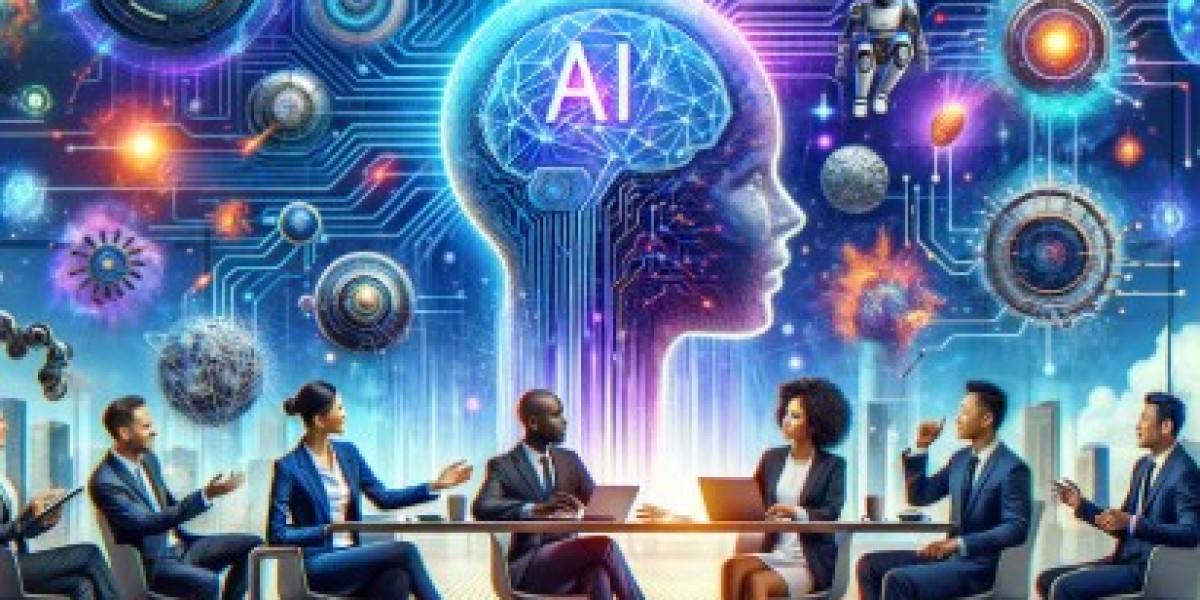Artificial Intelligence (AI) is rapidly transforming industries worldwide, making it one of the most crucial fields for aspiring engineers to master. With AI reshaping problem-solving, design, and innovation, engineering students must stay ahead of the curve to build future-ready careers. At Meenakshi College of Engineering, an esteemed Artificial Intelligence and Machine Learning , students are encouraged to gain proficiency in AI skills, making them highly competitive in the job market and preparing them for the evolving landscape of modern engineering.
Why AI Skills Matter for Engineering Students
AI is no longer confined to computer science; it has permeated multiple engineering disciplines, including mechanical, electrical, civil, and biomedical engineering. From optimizing industrial processes to developing intelligent robots and smart infrastructure, AI plays a pivotal role in engineering innovations. Mastering AI skills can open up diverse career opportunities, allowing students to work in cutting-edge fields such as robotics, automation, data science, and smart technologies.
Key AI Skills Every Engineering Student Should Master
1. Machine Learning (ML) Fundamentals:
Machine Learning (ML) is the foundation of AI, allowing systems to learn from data and make intelligent decisions. Engineering students must grasp ML fundamentals, including:
Supervised and Unsupervised Learning: Understanding how machines learn from labeled and unlabeled data
Neural Networks & Deep Learning:Exploring how multi-layered algorithms mimic human brain functions.
Regression and Classification Models:Learning predictive modeling techniques.
Model Evaluation and Optimization: Knowing how to fine-tune AI models for better performance.
With applications in robotics, predictive maintenance, and automated quality control, ML is indispensable in engineering domains.
2. Data Analysis and Interpretation
Data is the driving force behind AI. Engineers must develop skills in data collection, preprocessing, and visualization. Key aspects include:
Statistical Analysis & Probability:Essential for understanding data trends and making predictions.
Data Cleaning & Preprocessing:Handling missing or inconsistent data to improve AI model accuracy.
Big Data Handling: Working with large-scale datasets using tools like Apache Spark and Hadoop.
Visualization Techniques: Representing complex data insights through graphs and dashboards using Matplotlib, Seaborn, or Tableau.
Industries such as aerospace, civil engineering, and renewable energy rely on AI-driven data analysis to enhance operational efficiency and predictive maintenance.
3 . Programming Languages for AI
Engineering students aiming to excel in AI must be proficient in the following programming languages:
Python:The most popular AI language, thanks to libraries like TensorFlow, PyTorch, and Scikit-Learn.
R:Widely used for statistical computing and data analysis.
Java & C++: Essential for AI applications in gaming, autonomous systems, and embedded systems.
MATLAB: Useful for AI applications in control systems and signal processing.
Mastering these languages enables engineers to build AI models, automate tasks, and develop intelligent software solutions.
4 . AI Ethics and Responsible Engineering
With AI becoming more integrated into daily life, ethical considerations are critical. Engineering students must understand:
Bias in AI Models: Ensuring fairness in AI algorithms.
Privacy and Data Security:Protecting sensitive user information.
Accountability and Transparency: Designing AI systems that are explainable and accountable.
Social Impact of AI: Understanding how AI affects employment and decision-making processes.
By engaging in AI ethics discussions, students can contribute to the development of responsible AI technologies.
5 . AI in Automation and Robotics
Automation and robotics are among the most impactful applications of AI. Engineering students should explore:
Autonomous Systems: AI-powered drones, self-driving cars, and robotic process automation (RPA).
Industrial Robotics:AI-driven robotic arms used in manufacturing and assembly lines.
Human-Robot Interaction:Enhancing collaboration between AI systems and humans.
AI in IoT (Internet of Things):Developing smart homes, connected devices, and intelligent sensors.
Robotics and automation are revolutionizing industries, and engineers with AI expertise are in high demand.
6. AI Applications in Engineering Fields
AI is reshaping various engineering disciplines:
Mechanical Engineering: Predictive maintenance, smart manufacturing, and automated quality control.
Civil Engineering:AI-driven construction planning, structural health monitoring, and smart city projects.
Electrical Engineering: AI in power grids, energy optimization, and intelligent circuit design.
Biomedical Engineering:AI-powered diagnostics, robotic surgery, and personalized medicine.
Gaining AI expertise can help engineers drive innovation in their respective fields.
How Engineering Students Can Start Learning AI
1. Online Courses and Certifications
Students can enroll in AI and ML courses on platforms like Coursera, Udacity, and edX to gain foundational and advanced knowledge.
2. Hands-on Projects and Internships
Working on real-world AI projects, such as image recognition, predictive modeling, and AI-powered chatbots, enhances practical skills. Internships at AI-driven companies provide industry exposure.
3. AI Hackathons and Competitions
Participating in hackathons like Kaggle competitions, Google AI Challenges, and university-level AI contests helps students apply their knowledge and network with industry professionals.
4. AI Research and Publications
Engaging in AI research and publishing papers on AI innovations can boost academic and professional credibility.
5. AI-Based Startups and Entrepreneurship
Students can explore AI-driven entrepreneurship by developing AI-powered products and solutions, contributing to the startup ecosystem.
Conclusion
AI is no longer a futuristic concept; it is shaping the present and future of engineering. Mastering AI skills can provide engineering students at Meenakshi College of Engineering with a competitive edge in the job market and open doors to high-demand career opportunities. From machine learning and data analysis to automation and robotics, AI is revolutionizing industries, and engineers must embrace this transformation to thrive in the evolving technological landscape.
By integrating AI into their learning journey, engineering students can build innovative solutions, contribute to groundbreaking research, and play a vital role in shaping the future of technology. Now is the time to dive into AI and prepare for an exciting and dynamic engineering career!
Maghanap
Mga Sikat na Post
-
 Top 20 Blockchain Application Development Ideas for BusinessesSa pamamagitan ng shivraj_712
Top 20 Blockchain Application Development Ideas for BusinessesSa pamamagitan ng shivraj_712 -
 New Gilt Set Vampyra Countess Makes a Grand Entrance~Sa pamamagitan ng seoxiongmao
New Gilt Set Vampyra Countess Makes a Grand Entrance~Sa pamamagitan ng seoxiongmao -

-
 The Ultimate Resource Hub for Students and ProfessionalsSa pamamagitan ng maratikc8
The Ultimate Resource Hub for Students and ProfessionalsSa pamamagitan ng maratikc8 -
 How To Use Web 2.0 Sites For BacklinksSa pamamagitan ng sarahtimms
How To Use Web 2.0 Sites For BacklinksSa pamamagitan ng sarahtimms
Mga kategorya
- Mga Kotse at Sasakyan
- Komedya
- Ekonomiks at Kalakalan
- Edukasyon
- Aliwan
- Mga Pelikula at Animasyon
- Paglalaro
- Kasaysayan at Katotohanan
- Live na Estilo
- Natural
- Balita at Pulitika
- Tao at Bansa
- Mga Alagang Hayop at Hayop
- Mga Lugar at Rehiyon
- Agham at teknolohiya
- Palakasan
- Paglalakbay at Mga Kaganapan
- Iba pa




